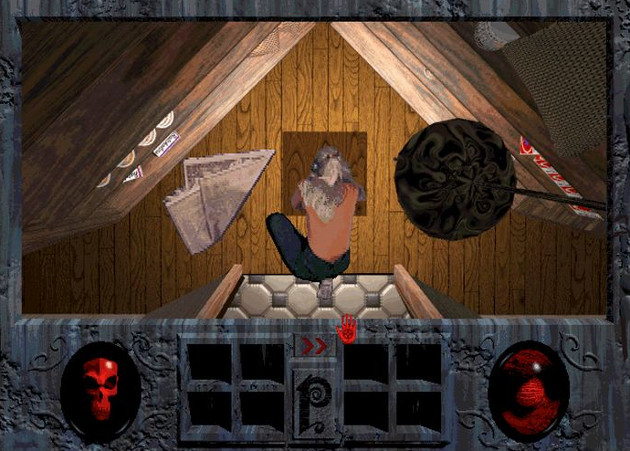What Phantasmagoria Taught Me About the Ethics of Plagiarism
During my senior year of high school, I filled my schedule with all the blow-off classes I could. I took an “independent study” class in which I glued photos of John Cusack to pieces of poster board. I took three full hours of choir. And, for one hour a day, I helped out my teachers as an unpaid aide.
I mostly used this period to play on the Internet, but every now and then, I had to do actual work. While I wasn’t qualified to actually grade papers, I was occasionally asked to read through them and sort them into piles that represented the grades I thought they deserved.
Reading my classmates’ assignments was initially entertaining in a voyeuristic sort of way, but it soon turned into tiresome work. Most high-school-level papers are pretty terrible, and the hours I spent reading through them were excruciatingly dull.
Except for the time someone turned in a plagiarized copy of Roberta Williams’ Phantasmagoria for a short story assignment.
Phantasmagoria had been released several years earlier, in 1996. The gory death scenes and sexual content meant the game was banned from my household, but my love of point-and-click adventure games had convinced me to sneak around and play it anyway. Years later, this small act of rebellion forced me to deal with a very strange ethical quandary.
While the writer of the Phantasmagoria rip-off had the courtesy to change the title and character names, virtually everything else was identical. Every death scene was transcribed in gruesome detail, and the game’s story was copied to the letter. Even if I’d listened to my parents, I would have quickly realized that I was reading the plot of a video game.
But while I was familiar with video game tropes, my 60-year-old teacher wasn’t. I knew that if I didn’t fill her in on the story’s origins, she’d never figure it out.
In the present day, the solution to my problem seems obvious. I should have let my teacher know that the story was plagiarized, and let the student deal with the consequences of their own goofy actions.
But as a teen, I was desperate to be liked — so much so that the mere idea of causing problems for one of my classmates made me sick to my stomach. My residual guilt only complicated matters further, and it was hard not to feel like the story was a bizarre punishment for playing M-rated games behind my parents’ backs.
In the end, I never said a word, and the shamelessly heisted story received a decent grade. Sometimes I wonder what kind of effect my lack of action had. Did the student later turn in a barely altered version of Phantasmagoria 2: A Puzzle of Flesh? Did I keep them from learning a desperately needed lesson?
Phantasmagoria wasn’t a particularly interesting game, but the impact it had on me was kind of profound. Back then, I used to draw inspiration from every piece of entertainment I consumed, whether it was an issue of a comic book or a scene from a video game.
But reading that story made me realize that maybe I wasn’t being inspired as much as I was stealing things outright. It helped me to understand that it was possible to plagiarize something without copying it word for word.
And while I’d never go so far as to turn in a video game plot for an assignment, that was probably a lesson I needed to learn too.



